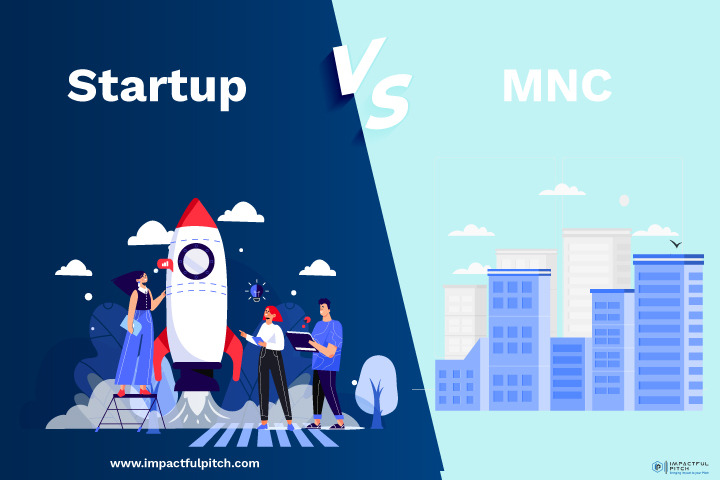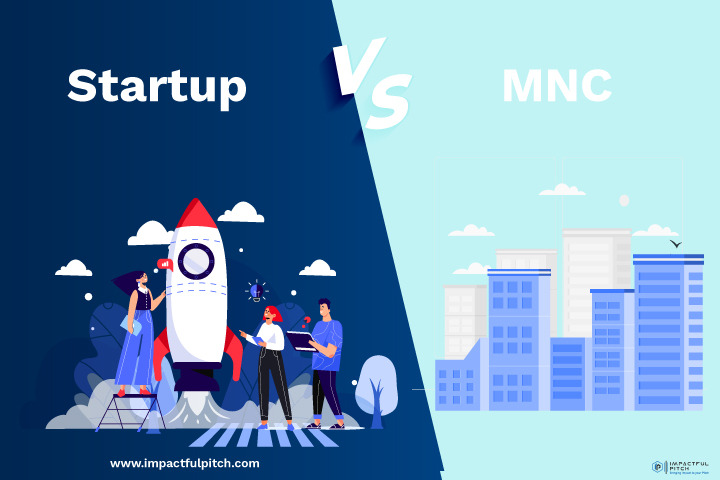
When it comes to choosing between a career at a startup or a large multinational corporation (MNC), there are pros and cons to both options. Ultimately, what is best for you will depend on your personal goals and priorities. In this article, we will explore some of the key differences between working for a startup and working for an MNC, and help you decide which option might be the best fit for you.

Work Environment:
One of the main differences between startups and MNCs is the work environment. Startups are often known for their relaxed and flexible culture, where employees are given a lot of autonomy and can make an impact on the direction of the company. This can be very appealing to people who thrive in a fast-paced, innovative environment. On the other hand, MNCs tend to have a more formal and hierarchical structure, with established processes and procedures that employees are expected to follow. If you prefer a more structured work environment, an MNC might be a better fit for you.

Growth Opportunity:
Another important consideration is the potential for growth and advancement. Startups often offer more opportunities for employees to take on additional responsibilities and advance within the company. This can be especially appealing to people who are looking for a fast-track to leadership positions. However, the downside is that startups may not have the financial stability or resources of an MNC, which can make job security less certain. In contrast, MNCs tend to have a clear career progression path, with defined roles and promotions based on merit. However, competition for advancement may be more intense at an MNC, and it may take longer to reach leadership positions.

The Nature of the Task:
Another factor to consider is the type of work you will be doing. Startups are often focused on developing new products or technologies, which can be very exciting and rewarding for employees who are passionate about innovation. On the other hand, MNCs may offer a more diverse range of products and services, but the work may be more predictable and incremental in nature. If you are someone who enjoys tackling new challenges and being at the forefront of change, a startup might be the right choice for you. However, if you prefer a more stable and predictable work environment, an MNC might be a better fit.

Payscale & Compensation:
Compensation is another important consideration when choosing between a startup and an MNC. MNCs tend to offer more comprehensive benefits packages, including health insurance, retirement plans, and other perks. Startups, on the other hand, may not be able to offer the same level of benefits but may compensate employees with equity in the company. This can be a good option for people who are willing to take on more risk in exchange for the potential for a larger payout down the line. However, it is important to carefully consider the trade-offs and make sure you are comfortable with the level of risk involved.
Company Culture:
Finally, it is important to consider the company's culture and values when deciding between a startup and an MNC. Startups often have a more collaborative and inclusive culture, where employees are encouraged to take ownership of their work and contribute to the direction of the company. MNCs may have a more hierarchical culture, with a greater emphasis on following established procedures and protocols. If you thrive in a collaborative and innovative environment, a startup might be the right choice for you. However, if you prefer a more predictable and structured work environment, an MNC might be a better fit.
In conclusion, there are pros and cons to both working for a startup and working for an MNC. It ultimately comes down to personal preference and what you value most in your career. Consider your goals, priorities, and the type of work environment that would best suit you, and choose the option that aligns best with those values.
Blog Categories
Recent Posts
No item found!
Connect
Subscribe
Please insert your API key for mailchimp.



